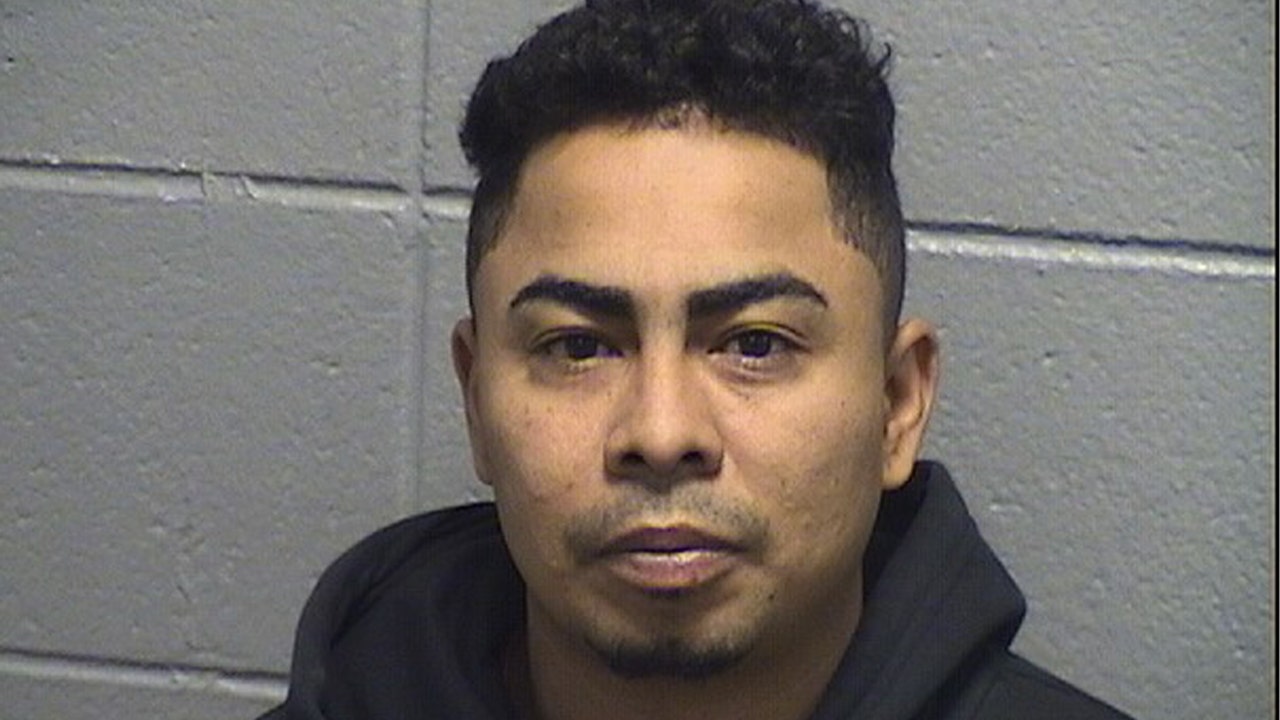United States
Suspected Tren de Aragua member released on probation in domestic battery case despite 2022 deportation order

In the heart of Chicago, a concerning situation has unfolded, drawing attention to the complex interplay between immigration policies and public safety. Pedro Colmenares, a 33-year-old man from Venezuela, has become the focal point of this debate. Despite being ordered to leave the United States in November 2022, Pedro remains in the city, entangled in a web of legal proceedings and criminal allegations. His case highlights the challenges faced by law enforcement and the judiciary in balancing public safety with legal protections, reflecting broader issues in immigration and criminal justice.
Pedro’s journey began in September 2022, when he entered the U.S. without authorization. His presence here was swiftly met with legal action, as an immigration judge ordered his deportation just two months later. However, Pedro chose to appeal this decision, a right afforded to him under U.S. immigration law. This appeal allowed him to remain in the country, and he subsequently settled in Chicago. His stay was not without incident; by October 2023, Pedro encountered legal trouble again, this time for a weapons charge in the Chicago area. This incident brought him back under the scrutiny of the Department of Homeland Security (DHS), which issued an ICE detainer requesting his custody. However, Cook County’s sanctuary policy, which limits cooperation with federal immigration authorities, meant that Pedro was released from custody once more.
The implications of sanctuary policies are a contentious issue, and Pedro’s case underscores the tensions they create. Sanctuary policies are designed to foster trust between immigrant communities and local law enforcement, ensuring that individuals feel safe cooperating with authorities without fear of deportation. However, critics argue that these policies can hinder efforts to detain and remove dangerous individuals, potentially putting public safety at risk. Pedro’s case has become a symbol of these tensions. Despite an ICE detainer, Cook County’s decision not to comply meant that Pedro was free to move about the community, even as he faced serious allegations.
In addition to the weapons charge, Pedro’s legal troubles have deepened with a shocking domestic violence case. In October 2023, he was accused of kidnapping and sexually assaulting his former girlfriend, a 27-year-old Hispanic woman. According to court documents, Pedro allegedly approached the woman, threatened her with a firearm, and forced her into a vehicle. He then drove her to a location on Chicago’s west side, where he subjected her to physical and sexual abuse over the course of several days. These allegations are grave, and they have understandably raised concerns about Pedro’s potential danger to others.
The legal system’s response to Pedro’s case has been marked by a combination of oversight and frustration. When he was taken into custody earlier this year, Chicago Police questioned him regarding his suspected involvement in the shooting death of a 25-year-old Hispanic man in September 2023. While probable cause was established to hold him for murder, the Cook County State’s Attorney’s office ultimately declined to press homicide charges. Prosecutors cited insufficient evidence and uncooperative witnesses as the reasons for their decision. This outcome has understandably frustrated law enforcement and raise questions about the effectiveness of the justice system in such cases.
Despite the serious nature of the allegations against Pedro, his current status remains concerning. He was ordered to appear before a judge on March 5, 2024, and was instructed to surrender any weapons and avoid contact with the domestic abuse victim. However, he was not placed under electronic monitoring, a decision that has raised eyebrows given the severity of the charges against him. This lack of oversight has left some questioning whether sufficient safeguards are in place to protect potential victims and ensure public safety.
In conclusion, Pedro Colmenares’ case serves as a microcosm of the broader challenges surrounding immigration enforcement, public safety, and legal protections in the United States. His ability to remain in the country despite a deportation order and serious criminal allegations has reignited debates about the role of sanctuary policies and the limits of law enforcement cooperation with federal authorities. While sanctuary policies aim to protect vulnerable communities, cases like Pedro’s highlight the delicate balance between these protections and the need to safeguard public safety. The outcome of Pedro’s legal proceedings will likely be closely watched, not only for its implications in his specific case but also for what it may signal about the broader approach to immigration and criminal justice in jurisdictions like Cook County.